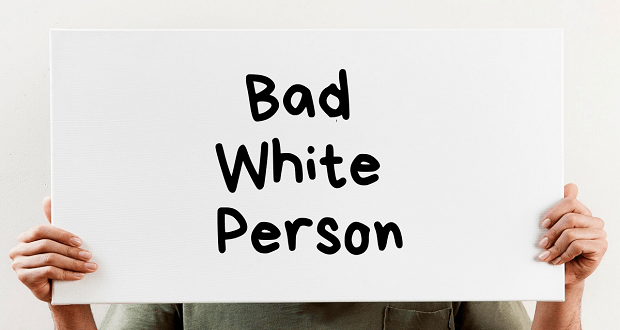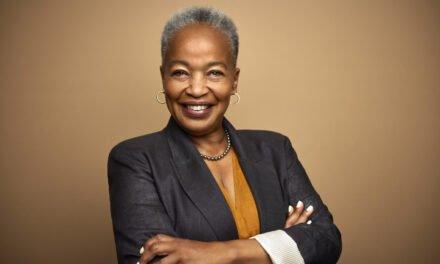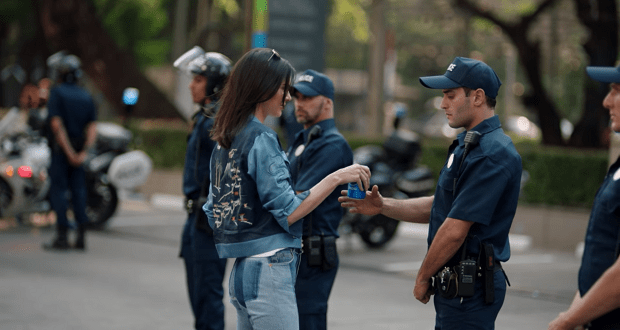
Editor’s note: This year, we at the Winters Group have observed ways that trends like fragility and protection of those most privileged find their way into various spaces—even those intending to center equity and inclusion. This topic has been central to many of our internal discussions, and has inspired our upcoming feature series, which will debut in the new year (stay tuned!)
This fall, Principal Strategist Travis Jones was invited to speak at TEDxCharlotte, and delivered a powerful statement around his reflections on whiteness. He titled the talk “Bad White People,” but when it was posted to Youtube, TEDx elected to change the title. This represented an ironic illustration of one of Travis’ central points in the talk: white people’s discomfort surrounding the naming of their race. In response, Travis wrote the following open letter to TEDx expressing his concerns about this decision.
My talk is titled “Bad White People” but the (presumably) Good White People at TedX (*not TedxCharlotte*) changed my title to “Using your privilege to fight racism.” Here’s why it matters.
My talk is titled “Bad White People” but the (presumably) Good White People at TedX (*not TedxCharlotte*) changed my title to “Using your privilege to fight racism.” Here’s why it matters. Share on XIt was an honor to be selected to share my “big idea” on the TEDx stage. And one of my motivations in creating this talk was to move beyond, or complement, the professional discourse of the Anti-Racist Education Industry (of which I’m also a card-carrying member). The teacher in me wanted to take the best race scholarship available and boil it down to its most essential parts; then use metaphor, story, humor, poetry, etc. in communicating those ideas to people outside the sphere of academic discourse. I wanted to give the talk that I wish I had heard way back when.
I literally never use the word “privilege” in the entire talk. I use that in other work that I do, but I wanted this talk to be different. Privilege is used to described various advantages (seen and unseen) that one group has that another doesn’t. It’s a useful descriptor to talk about structural differences between groups. You can list privileges. You can count privileges. You can confess privileges. You can debate privileges. You can deny privileges. You can compare privileges.
But privilege doesn’t get at how “racism is ultimately a sickness of the soul.” At least not in a straightforward way. And I wanted this talk to be soul-talk.
I’m sure you can “use privilege to fight racism,” but I’m increasingly wanting to move from naming “racism” as the enemy to naming white supremacy. For so many white people, “racism” is exclusively an interpersonal thing like prejudice—so fighting it can be done by simply being nice to non-white people. This is also why white people love them some “reverse racism.” But “white supremacy” as a term is not only more accurate about the pervasiveness of racism and its origins—it’s also harder to wiggle away from.
I’m increasingly wanting to move from naming “racism” as the enemy to naming white supremacy. Share on X “White supremacy” as a term is not only more accurate about the pervasiveness of racism and its origins—it's also harder to wiggle away from. Share on XAdditionally, “fighting racism,”—though I use this phrase once in the talk—feels too confident, and too formulaic (especially as a title) for what I was after in my talk. It assumes the good/bad binary that I’m trying to challenge throughout the entire talk: the idea that those with “privilege” are the good guys fighting the good fight of racism, and racism (whatever that means and wherever that is) is the bad guy. It also plays into the all-too-common warrior parlance of YouTube, where reflection, listening, learning, meditating, and understanding are replaced with “destroying,” “owning,” and “fighting” your interlocutors.
The reason for grounding my talk in existential philosophy (of Baldwin) is that I believe before there is any kind of outward fighting against racism in the world, we must do the harder work of fighting racism in ourselves first: rebelling against the internal forces and false promises of white supremacy. We must rebel against the promise to white bullies that they’ll feel better, white hall monitors that they’ll win, and white colorblind liberals that they’ll be good enough.
We must rebel against the promise to white bullies that they’ll feel better, white hall monitors that they’ll win, and white colorblind liberals that they’ll be good enough. Share on XMy best guesses at why TEDx changed the title:
Colorblindness is the law of the liberal land, so any mention of race, especially whiteness, is seen as divisive. We must avoid divisive at all costs–especially when it’s intended for white people. They couldn’t even call it white privilege—LOL. Or maybe it was about clicks. I’m sure there’s far more traction and algorithms from the professional anti-racist language (like “privilege” and “fighting racism”) on YouTube than my ironic use of “Bad White People.” But I thought part of “sharing big ideas” was the assumption that they need to be engaged with on their own terms and wrestled with according to their bigness.
I’m sure for most people who will be driven to my talk, the title will be irrelevant, as “privilege” and “fighting racism” will be par for the course. But I did have small hopes that other kinds of white people would have found the talk and found something in it for them. TEDx’s attempt at being neutral and unoffensive in the title “using your privilege to fight racism” is an explicit “do not enter sign” for white people not immersed in the race discourse of the professional class (of which I’m a part) or who have preconceived notions about who can and cannot be an anti-racist (ex: SJWs).
TEDx’s attempt at being neutral and unoffensive in the title “using your privilege to fight racism” is an explicit “do not enter sign” for white people not immersed in the race discourse of the professional class. Share on X


















I don’t know just how I was lucky enough to stumble on your TEDx talk, Travis, what weird algorithm aimed my browser there, but it was a fantastic find. I learned, I laughed, I cried — and then I watched it again with a small group of other white people and I cried and laughed and learned some more. Thank you for your passion and poetry — to me, that equals prophecy. (Thanks for this clarifying article, too.)